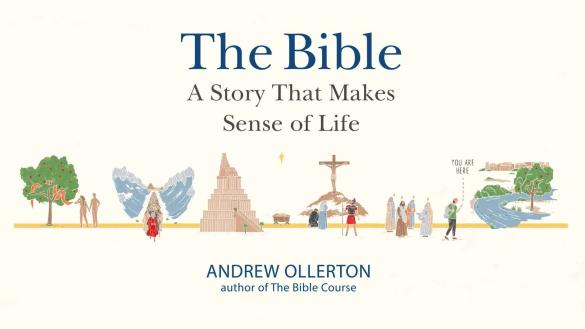In this sunny location, it’s hard to imagine that the Hinnom valley was once a place of disrepute. Awful practices had taken place here and it was considered a repulsive location. In Jesus’ day, it was the town’s rubbish dump where fires continually burned. It was here that Jesus spoke strong words of warning for those who don’t fear God.
There the worms that eat them never die, and the fire that burns them is never put out.
In Jesus’ day, the Valley of Hinnom, from which we get the term Gehenna, had long been associated with fire.
In the Old Testament, King Ahaz had ‘sacrificed his own son as a burnt offering to idols’ (2 Kings 16.3). The prophet Jeremiah (7.31–32) had denounced the practice of child sacrifice in the valley of Hinnom. And crucially, the prophet Isaiah had spoken of it as a place of inextinguishable fire devouring the wicked.
Those who heard Jesus talk about God’s judgement in connection with the Valley of Hinnom would have understood his allusion to Old Testament history and prophecy. Whether the place of judgement is, literally, a fiery place, is up for debate. But Jesus made no attempt to soften his message: ‘Fear God, who, after killing, has the authority to throw into hell’ (Luke 12.5).
The twentieth century gave us the internet and microwaves but it was also the bloodiest century in human history. We think humanity is getting better, but the twentieth century alone says we’re not. In his book Reappearing Church, Mark Sayers calls this the ‘secular myth’; it’s a belief founded on the concept that with time and ‘the right conditions and influences, humans are perfectible and that a kind of human utopia is possible’.
According to Jesus, the twentieth century is just the tip of the iceberg. Deep within us all, there is a bent away from God. This means we live our lives choosing a destiny away from the one in whom is life and love. So, when Jesus uses Gehenna as a metaphor for this destiny, he was deliberately conjuring up deep feelings of repulsion – people did everything they could to avoid going there. And so should we today. Jesus did not just warn, he made a way. A way back to God, a way back to love and life, and away from Gehenna. On the cross, he was shut out so we can come home.
Read on, to find out more about the message of judgement and redemption.
Subscribe to our Youtube channel to be updated on the latest videos!

An eight-session course helping you explore the world’s bestseller.

The Bible: A Story That Makes Sense of Life
What is the Bible and how is it relevant to me? This book is the perfect read for anyone asking those questions in the 21st century. The Bible: A Story That Makes Sense of Life helps readers see how the narratives and themes of the Bible connect to their own lives.